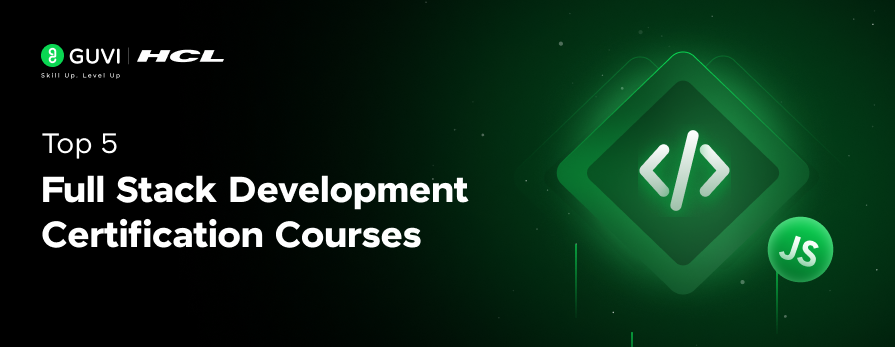
NodeJS or Python: Which Backend Technology is Best Suited in 2025?
Apr 16, 2025 6 Min Read 3398 Views
(Last Updated)
With the increase in backend frameworks, it became too difficult for developers to choose what to use and for which scenarios should we use those.
It is especially difficult to choose between NodeJS or Python, two of the popular backend technologies out there. While each of them has its specific set of benefits, let us understand, overall, which is better to use, NodeJS or Python.
In this article, you are going to learn about each of these technologies in detail and understand whether NodeJS or Python is better for backend work.
So, without further ado, let’s get started.
Table of contents
- Understanding NodeJS
- Understanding Python
- NodeJS or Python: A Differential Comparison of its Features.
- NodeJS or Python: What to Choose for Your Project?
- When to Choose NodeJS?
- When to Choose Python?
- Conclusion
- FAQs
- Which is easier to learn, NodeJS or Python?
- Can I use NodeJS for front-end development?
- Is NodeJS faster than Python?
- Are there scenarios where Python outperforms NodeJS in web development?
Understanding NodeJS

To help you understand which is better among the two, NodeJS or Python, we divided the section in such a way that first you’ll be learning about both of these languages and then at the end, you’ll be seeing whether NodeJS or Python is better.
Imagine you’re at a crowded coffee shop. In this coffee shop, every worker can handle only one customer at a time, from taking the order to making the coffee and then moving on to the next customer.
This is how traditional servers work; they can only handle one request at a time before moving on to the next. Now, if this coffee shop gets too busy, customers will have to wait a long time for their orders.
Enter Node.js, which flips this scenario altogether. Node.js is like a super-efficient coffee shop where each worker can start making a coffee, and while the coffee is brewing (a task that doesn’t need the worker’s constant attention), they can take another order, start making another coffee, and so on.
This is possible because Node.js operates on a non-blocking, event-driven model. This means it can handle many requests at the same time without waiting for each one to finish before starting the next.
It’s designed to be fast and efficient, especially for tasks that involve a lot of waiting, such as fetching data from another server or querying a database.
So, how does Node.js manage to do this? Well, it uses something called the “event loop.” You can think of the event loop as a to-do list that Node.js keeps checking. Whenever it finishes a task, it looks at this list to see if there’s anything else that needs to be done. This way, Node.js can quickly switch between tasks, making it incredibly efficient at handling multiple requests simultaneously.
Another key point about Node.js is that it uses JavaScript. JavaScript is a language many people already use to make websites interactive. By using JavaScript on the server side as well, developers can write both the client-side and server-side code in the same language.
Before diving into the next section, ensure you’re solid on Python essentials from basics to advanced level. If you are looking for a detailed Python career program, you can join GUVI’s Python Career Program with placement assistance. You will be able to master the Multiple Exceptions, classes, OOPS concepts, dictionary, and many more, and build real-life projects.
Also, if you would like to explore and learn more about NodeJS alone through a Self-paced course, try GUVI’s NodeJS Certification course.
Learn More: 7 Best Reasons to Learn JavaScript.
Understanding Python

Moving on in our quest to find which is better, NodeJS or Python, we’ve arrived at our next stop where we understand in-depth Python programming.
Imagine you’ve decided to learn to cook. You’ve never boiled water, let alone prepared a meal. Where do you start? With a cookbook written in straightforward, easy-to-understand language, right? That’s Python in the world of programming.
It’s like the friendly cookbook that doesn’t scare you away with complex jargon on your first day in the kitchen. Instead, it welcomes you with simple instructions that make sense even at first glance.
Python is a popular programming language known for its clear, readable style. It’s kind of like English; you write instructions that the computer understands and executes. Because of this simplicity, it’s often the first language people learn when they dive into coding.
You can use Python to do all sorts of things: build websites, analyze data, automate boring tasks, and even delve into artificial intelligence.
One of Python’s biggest strengths is its community. Imagine moving to a new town and finding out that everyone is eager to help you settle in. Got a question? Someone’s there to answer it. Stuck on a problem? There’s likely a friendly neighbor who’s solved it before. This supportive environment makes learning and working with Python not just easier but also enjoyable.
So, if you’re curious about coding but worried it’s too complex, think of Python. It’s your friendly guide into the world of programming, making sure you don’t get lost in the technicalities.
Let us move on to our next section where we learn the features come to know of whether NodeJS or Python is suitable.
Explore: 7 Best Websites to Learn Python for Free
NodeJS or Python: A Differential Comparison of its Features.

Based on the features, we’ll see whether NodeJS or Python is better suited for you.
| Features | NodeJS | Python |
|---|---|---|
| Core Language | It uses JavaScript, a language primarily known for front-end web development that’s also used on the server side with NodeJS. | It uses Python, a high-level programming language known for its readability and simplicity. |
| Primary Use Cases | It is ideal for building fast and scalable network applications, real-time applications (e.g., chat apps, online games), and server-side web applications. | It is widely used for web development, data analysis, artificial intelligence, scientific computing, and automation. |
| Execution Model | It is asynchronous and event-driven, allowing it to handle multiple connections simultaneously without much overhead. | It is synchronous by default, which can make it easier to understand and debug, though asynchronous capabilities can be implemented with libraries like asyncio. |
| Performance | It excels in handling numerous simultaneous connections with minimal performance overhead, making it suitable for I/O-bound tasks. | It performs well in CPU-bound tasks and is highly efficient for projects requiring complex calculations, data analysis, and machine learning. |
| Ecosystem | It features a vast number of libraries and tools via the npm package manager, making it highly extensible for web development. | It boasts a rich ecosystem with a wide range of libraries for various tasks, including Django and Flask for web development, and Pandas and NumPy for data science. |
| Community | NodeJS has a large and active community focused on web development and real-time applications. | Python features a broad and diverse community that contributes to a wide range of fields, from web development to scientific research. |
| Learning Curve | It is relatively easy for those already familiar with JavaScript; however, understanding the asynchronous programming model can be challenging for beginners. | It is considered one of the easiest programming languages to learn due to its clear syntax and readability, making it a popular choice for beginners. |
| Scalability | It is built from the ground up to be scalable and handle concurrent processes efficiently, using its non-blocking nature. | It is scalable with the right architectural patterns and can efficiently handle large-scale applications, especially with frameworks like Django. |
| Development Speed | Rapid development cycles are achievable, especially in environments that already leverage JavaScript. | Known for allowing fast development of applications, particularly because of its simplicity and the powerful, straightforward libraries available. |
This is the major comparison to understand the features and to decide whether NodeJS or Python is best suited. By this table, you already know that there is no one answer to the ultimate question, which is better backend technology, NodeJS or Python?
Know More: What is No-Code Development? Benefits & Examples
NodeJS or Python: What to Choose for Your Project?

Now that you’ve seen all the prerequisites needed to understand which is better, NodeJS or Python, let us now address the main topic and see which is better for your project, NodeJS or Python.
Before you go further, remember that both of these languages are strong in their way so we can’t say that one is better than the other rather what we can say is when to use what as they are powerful in certain circumstances.
Let’s delve deeper into each aspect of choosing between Node.js or Python, focusing on what’s most important for you and your project.
When to Choose NodeJS?
In the batter between NodeJS and Python, let us first see when to use NodeJS:
1. Real-Time Applications:
If you’re building real-time applications such as chat apps, live notifications, or online gaming interfaces, NodeJS is a strong contender. Its event-driven architecture is designed to handle asynchronous operations, making it adept at managing multiple connections simultaneously.
This means that for applications requiring instant updates or interactions, Node.js ensures quick, efficient processing without the bog-down of server requests.
Find Out Best Full-Stack Development Project Ideas
2. Full Stack Development with JavaScript:
If you or your team are already comfortable with JavaScript for front-end development, choosing Node.js for the backend can streamline your development process.
Using JavaScript on both the front and back ends of your application simplifies development, as you’re working with the same language and potentially similar libraries or frameworks across the entire project. This can lead to faster development cycles and easier maintenance.
Must Explore: Master Backend Development With JavaScript | Become a Pro
3. Building APIs:
Node.js is also great for developing RESTful APIs (Application Programming Interfaces) that allow your applications to communicate with other software.
Its ability to handle a large number of connections with low latency makes it ideal for services where you need to connect to databases or other services and deliver data efficiently to users.
When to Choose Python?
Let us see about Python in our updated quest to find when to use what, NodeJS or Python:
1. Data Science and Machine Learning:
Python is the go-to language for data science, machine learning, and artificial intelligence projects. This is thanks to its rich ecosystem of data-focused libraries like NumPy, pandas, and scikit-learn, as well as powerful frameworks for AI such as TensorFlow and PyTorch.
If your project involves data analysis, predictive modeling, or any form of AI, Python provides the tools and libraries to get the job done effectively and efficiently.
Must Read: Data Science vs. Machine Learning: What every elite coder needs to know
2. Rapid Development and Prototyping:
Python’s syntax is designed for readability and simplicity, making it an excellent choice for quickly developing prototypes or projects where development speed is a priority.
With frameworks like Django and Flask, you can set up a robust web application or API quickly, allowing more time to focus on your application’s features rather than boilerplate code.
3. Educational, Scientific, and Numeric Computing:
Python is widely used in academic and scientific research because of its simplicity and the vast array of libraries available for numeric and scientific computing, such as SciPy and Matplotlib.
If your project involves complex mathematical calculations, statistical analysis, or graphical representations of data, Python’s ecosystem has the tools to support these requirements.
To put it simply, choosing between NodeJS or Python comes down to the specific needs of your project and your personal or team’s proficiency with the technologies.
- Opt for NodeJS if you’re developing real-time applications, need to work within a JavaScript stack, or are focusing on building scalable network applications and APIs.
- Choose Python if your project revolves around data science, or machine learning, or requires rapid development with a focus on readability and ease of use.
As we said earlier, there is no one answer to the question, NodeJS or Python, it is evident that both of them are strong in certain aspects and it is important to embrace them both to become a better full-stack developer.
Kickstart your Programming journey by enrolling in GUVI’s Python Course where you will master technologies like multiple exceptions, classes, OOPS concepts, dictionaries, and many more, and build real-life projects.
Alternatively, if you would like to explore and learn more about NodeJS alone through a Self-paced course, try GUVI’s NodeJS Certification course.
Also Read: Full Stack Developer: Discover the Fastest Route to Becoming One
Conclusion
In conclusion, choosing between NodeJS or Python hinges on your project’s specific requirements, the technology stack you’re comfortable with, and your development goals. From reading all these, you must know now that it is not a question of NodeJS or Python, it is a question of when to use what.
NodeJS excels in building real-time applications and APIs, especially for projects deeply integrated with JavaScript. On the other hand, Python is unmatched for data science, machine learning, and projects that benefit from rapid development and readability.
Both languages offer robust communities and libraries, making them powerful tools in their respective domains. Ultimately, the decision to choose NodeJS or Python should align with your project’s needs, leveraging the unique strengths of each technology to achieve your objectives.
Remember that it is not NodeJS or Python, rather it always is NodeJS and Python.
Also Explore: Salary of a NodeJs Developer in Famous 10 Companies in India
FAQs
Python is generally considered easier to learn for beginners due to its clear and readable syntax, making complex concepts more accessible.
NodeJS is primarily a server-side platform, but it can be used in front-end development as part of a full-stack JavaScript environment.
NodeJS can be faster for I/O-bound tasks due to its non-blocking nature, while Python may perform better in CPU-bound tasks, depending on the implementation.
Python may outperform NodeJS in projects that require rapid development, thanks to frameworks like Django which allow for quick setup and development.


























![Top Frontend Developer Skills: A Beginner's Guide [2025] 10 frontend developer skills](https://www.guvi.in/blog/wp-content/uploads/2023/03/Top-Frontend-Developer-Skills-A-Beginners-Guide.png)

![Top 10 React Native Project Ideas [With Source Code] 12 React Native Project Ideas](https://www.guvi.in/blog/wp-content/uploads/2024/10/React_Project_Ideas.png)



Did you enjoy this article?